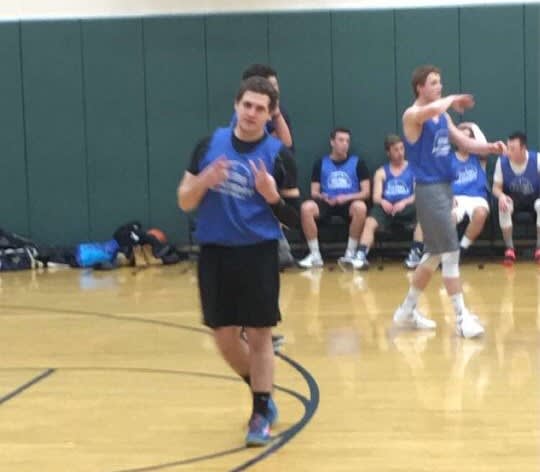As the clock struck midnight on July 1, college athletics saw a monumental policy change finally take effect. Following a Wednesday decision that saw the NCAA governing bodies adopt a policy suspending all previous rules which prohibited college athletes from accepting money for commercial endorsements, college athletes will now be able to monetize their name, image and likeness (NIL).
Trying to stay ahead of the curve, Michigan State University has developed its own name, image and likeness program. Named EverGreen, the innovative program has positioned Michigan State athletics at the forefront when it comes to NIL initiatives.
Launched last week, EverGreen serves to provide student athletes with top-of-the-line support for all things name, image and likeness. The university teamed up with Anomaly Sports Group, which will handle the educational side of things, and INFLCR, which will help student-athletes with endorsement contracts.
According to a Michigan State press release, Anomaly is recognized as an industry leader in the field of student-athlete development and education. Through this NIL focused partnership, Anomaly has created a MSU-specific education plan designed to prepare every Spartan student-athlete for NIL rules in addition to concepts surrounding decision-making, and business financial management and contracts.
MSU, Indiana, Ohio State, Florida State and Texas are among Anomoly's initial clients in this space.
"Our goal is to provide our student-athletes the tools for success — on the field of competition, inside the classroom and beyond MSU," Michigan State Vice President and Director of Athletics Bill Beekman said in a statement announcing the program.
Michigan State head football coach Mel Tucker also chimed in with this quote from the team's official Twitter account:
SpartanMag had the opportunity to talk with Michigan State football's Director of Player Engagement, Darien Harris on Thursday. The former standout Spartan linebacker turned rising star staff member served on the committee that turned the EverGreen program from a vision into a reality.
"It’s endless possibility, just about, with this legislation," Harris said. "You can now be a business owner as a student athlete. You can now create and sell a product. You can start a non-profit. You can create an app, create some software. You can run kids camps in your hometown."
Student athletes like Florida State's McKenzie Milton and Miami's D'Eriq King jumped on the opportunity to start a business, co-founding Dreamfield, a platform used to book athletes for live events. Their company launched on July 1.
Many athletes across the nation have taken to social media to promote products, including a handful of Michigan State football players who have advertised Yoke, a gaming app that gives fans the opportunity to play with their team's athletes.
Michigan State University made its name, image and likeness policy public on Thursday afternoon, releasing the document that highlights the do's-and-don'ts of the landmark policy change.
Most notably, student athletes must disclose any proposed NIL arrangement to the university at least seven days in advance of said venture taking place.
"I think from our perspective, our main thing, and really the only thing we focus on as a school, as an institution, is just how we educate our players on what they need to do and what they can do to build their brand," Harris said. "Outside of that, it's on the student athlete to make it happen."
Tucker, along with the rest of his staff, have NIL at the top of their list of priorities when it comes time to recruit. Harris was tasked with presenting EverGreen to prospective student athletes during official visits this past month.
"One of the first things we talk about on an official visit is our presentation on EverGreen," Harris told SpartanMag. "We come out of the gates with that. We really hit recruits and their families with that strongly because we believe in it and we want our student athletes to make as much money as possible off this."
Harris went on to explain what he presents to visitors and their families:
"We dive into why we believe we have the best NIL program in the country. We go over the content side of things. How we are going to assist you with our creative team and building your brand. Finding your fair market value and your metrics on social media. Then move onto the educational piece with Anomaly - their decision making, due diligence, money making, and contracts curriculum. Showing how this will not only help you to make money, but also help you keep it. We call this 'protective education.' That is where we think we are separate from other places."
While some are worried that not everyone will benefit from the change in policy, Harris was quick to point out why he believes differently, suggesting that anybody from walk-ons to superstars can build their brand on social media and profit.
"We feel that our platform allows you to maximize NIL no matter who you are. We firmly believe we are at the forefront and will continue to build on it," Harris said.
